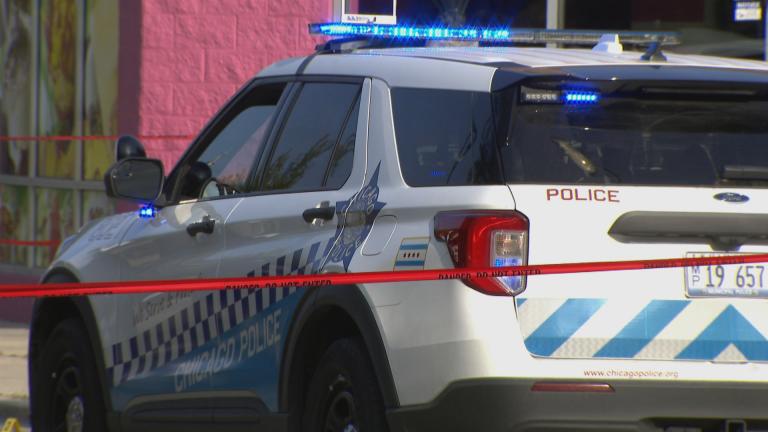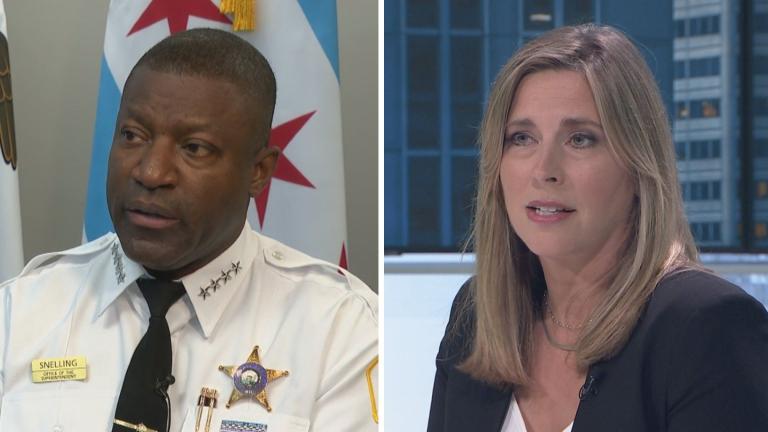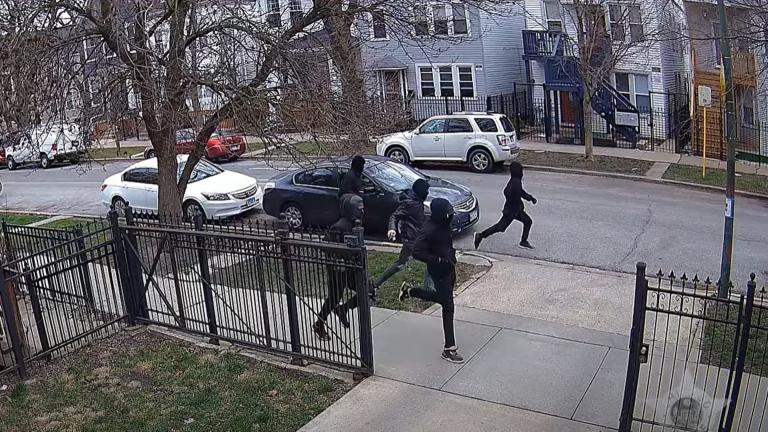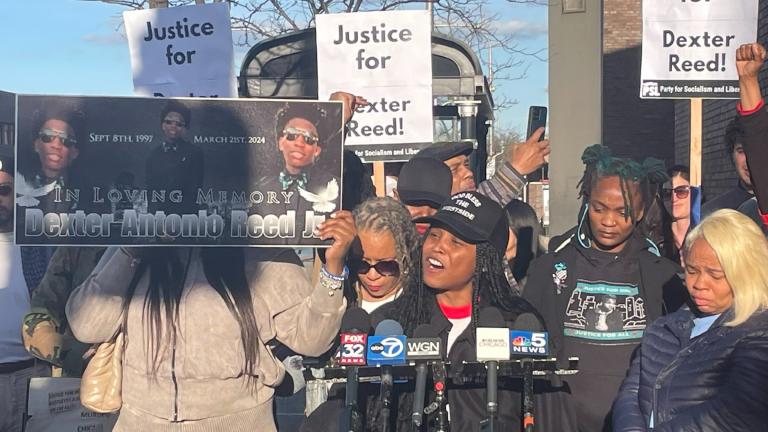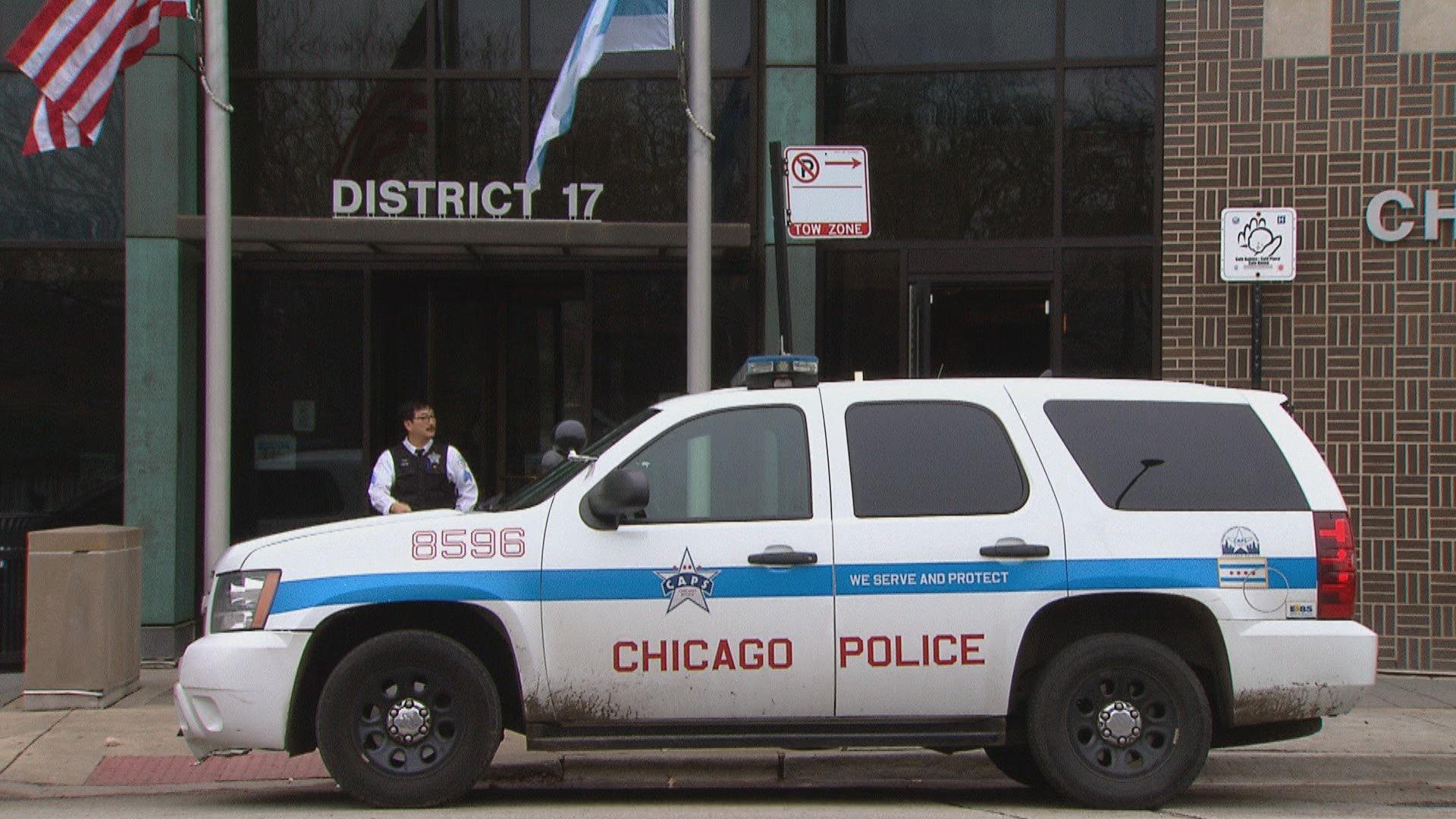 (WTTW News)
(WTTW News)
Some supporters of Chicago’s new police oversight panel — designed to give Chicagoans more control over how the Chicago Police Department operates — vowed Friday to ask voters to boost the board’s power and give it the authority to fire the city’s top cop.
However, the fate of that push is uncertain, as it faces a wall of opposition on the Chicago City Council and far from unanimous support from police reform advocates.
Members of the Empowering Communities for Public Safety coalition gathered virtually Friday morning to celebrate what they called an “historic victory” when the Chicago City Council voted 36-13 Wednesday to create the panel, hailed by police reform advocates as the most far-reaching in the nation.
Ushering in a new era of police oversight and reform, the board will be charged with building trust in officers and police brass and putting an end to repeated allegations of misconduct and multimillion dollar lawsuit settlements. It will face opposition from the police union that represents rank-and-file officers, and alderpeople convinced it will thwart crime fighting efforts and deter applicants.
But less than 48 hours after the hard-fought and long-sought victory that was celebrated by not only the coalition but also by Mayor Lori Lightfoot, police reform advocates said they were preparing for the next phase of the fight.
Jazmine Salas, of Chicago Alliance Against Racist and Political Repression, said the victory does not belong to the mayor, who blocked the push to create the panel for 16 months — after making it a central promise in her 2019 campaign for mayor.
“The mayor obstructed [Empowering Communities for Public Safety],” Salas said. “We haven’t forgotten.”
After the vote, Lightfoot said the measure passed by the City Council was the result of a collaboration between community groups and elected officials all working in the city’s best interest.
The ordinance that passed the Chicago City Council Wednesday, known as ECPS, was crafted in March, after members of the Grassroots Association for Police Accountability, known as GAPA, joined forces with supporters of a proposal known as CPAC in March.
Much of the structure of the Community Commission for Public Safety and Accountability created Wednesday by the City Council was laid out in the proposal from GAPA, which community groups began crafting in 2016 as a response to the 2014 police murder of 17-year-old Laquan McDonald.
The GAPA proposal differed significantly from the plan laid out by CPAC, which would have given a directly elected board the power to hire and fire the superintendent, negotiate contracts with the police department’s labor unions and set the Chicago Police Department’s budget.
However, that would have required a change in state law — or the approval of a binding ballot question by Chicago voters. Lightfoot opposes all of those proposals, saying it would make it impossible for any Chicago mayor to run the Police Department.
Supporters of the proposal crafted by GAPA did not favor those provisions, and the groups were at odds for several years.
The panel created by the Chicago City Council will have the power to hire the head of the Civilian Office of Police Accountability, known as COPA, which is the agency charged with probing police misconduct.
In addition, the commission will have the power to pass a resolution of no confidence in the superintendent and any member of the Chicago Police Board with a two-thirds vote. That could trigger City Council action.
The panel will also have the final say on policy for the Chicago Police Department — but it also gives the mayor a veto that could be overridden by a two-thirds vote of the Chicago City Council.
“People who have been most impacted by policing will be able to share their experience and their expertise to create better solutions and better policy,” said Sarah Yousef, an organizer with the Community Renewal Society.
Originally, members of the ECPS coalition asked members of the Chicago City Council to create the panel as envisioned by GAPA and put the referenda to voters at the same time as part of an effort to unify Chicago’s police reform community to fight the mayor’s proposal, which would have given the oversight panel only advisory power.
But by mid-June, it was clear the ECPS proposal would not win the support of the City Council’s Public Safety Committee with the inclusion of the ballot question. Led by Ald. Carlos Ramirez-Rosa (35th Ward), the coalition made the “tactical decision” to drop its effort to put the question to voters for the time being, while vowing to push for a separate vote on the binding referenda.
That decision paved the way for a new round of negotiations with the mayor, and the final deal.
“We have stretched to the maximum limit where we can get civilian oversight, but we’re still committed to going even further,” Ramirez-Rosa said Friday.
Ramirez-Rosa said the final version of the community oversight panel was even stronger than the proposal from GAPA, and credited the coalition with forcing the mayor “to keep her word.”
“We painted the mayor into a corner,” Ramirez-Rosa said.
Elections to create three-member councils in each of Chicago’s 22 police districts are set for 2023. Members of those councils would nominate seven people — to be confirmed by the mayor and Chicago City Council — to serve on a commission that would oversee the city.
Before those elections, Lightfoot will select the members of an interim commission from among 14 people nominated by the City Council led by Rules Committee Chair Ald. Michelle Harris (8th Ward).
Contact Heather Cherone: @HeatherCherone | (773) 569-1863 | [email protected]



